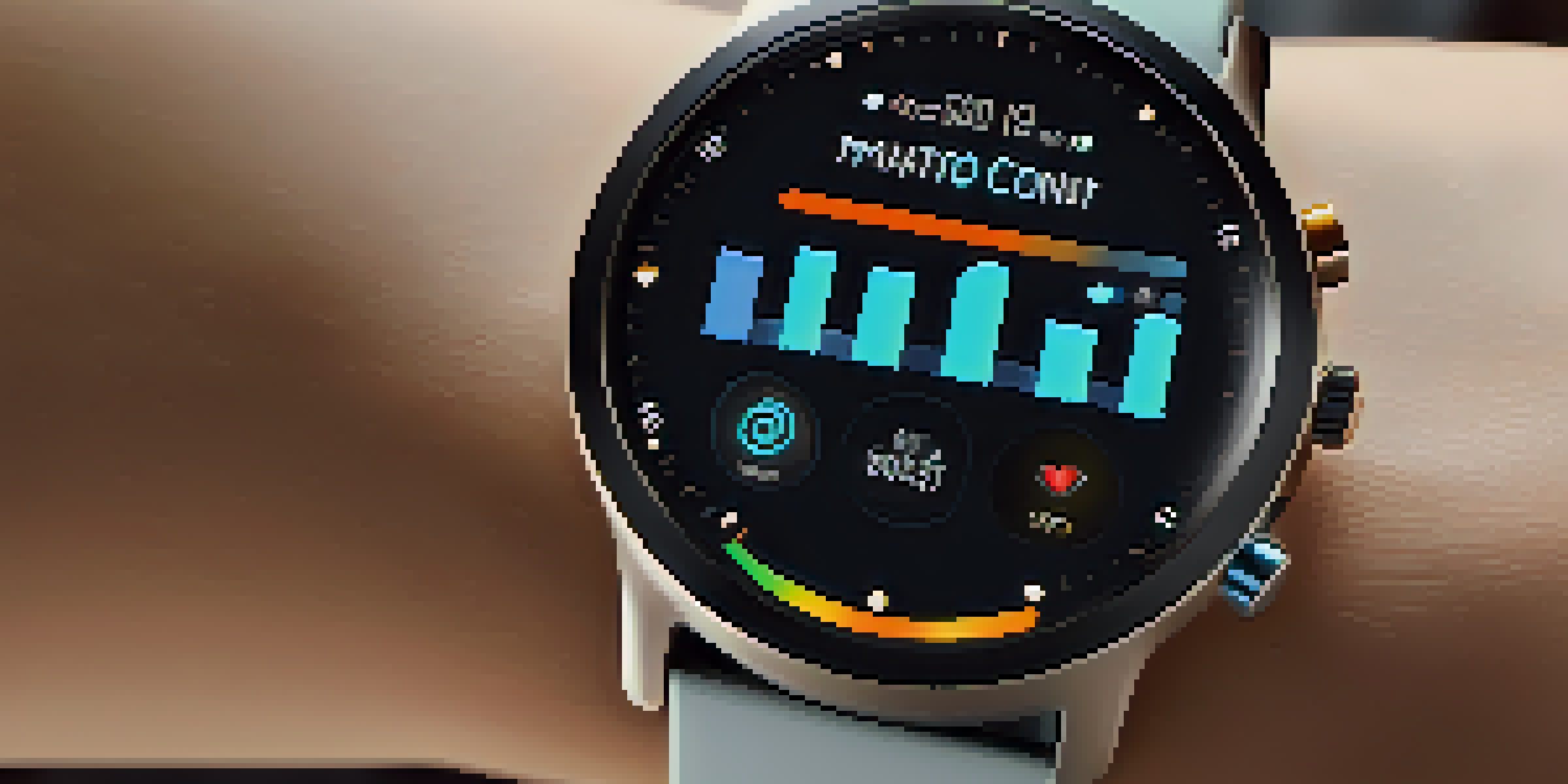The Role of Wearable Tech in Preventive Healthcare Strategies

Understanding Wearable Technology in Healthcare
Wearable technology refers to devices that can be worn on the body, such as fitness trackers and smartwatches. These gadgets monitor various health metrics, enabling users to track their wellness in real-time. By collecting data like heart rate, sleep patterns, and activity levels, wearables provide valuable insights into personal health.
The greatest wealth is health.
The rise of wearable tech has made health monitoring more accessible than ever. No longer do individuals need to wait for a doctor's appointment to check their vitals; they can do it at home or on the go. This ease of access empowers people to take charge of their health and make informed decisions.
Moreover, with the integration of mobile apps, users can analyze their data and set health goals. This level of engagement fosters a proactive approach to wellness, which aligns perfectly with preventive healthcare strategies aimed at avoiding health issues before they arise.
The Importance of Preventive Healthcare
Preventive healthcare focuses on measures that can prevent diseases or detect them early, significantly improving outcomes. By addressing potential health concerns before they escalate, individuals can save on medical costs and improve their quality of life. This proactive approach is essential in managing chronic diseases that require ongoing treatment.

Incorporating preventive strategies can also help alleviate the burden on healthcare systems. When people take steps to maintain their health, there are fewer hospital visits and lower rates of severe illnesses. This not only benefits individuals but society as a whole, promoting a healthier population.
Wearables Empower Health Monitoring
Wearable technology provides real-time health metrics, allowing users to actively engage in their wellness journey.
Engaging in preventive healthcare often involves lifestyle changes, such as improved diet and increased physical activity. Wearable tech fits seamlessly into this picture by encouraging users to adopt healthier habits through real-time feedback and reminders.
How Wearable Tech Enables Health Monitoring
Wearable devices can track a plethora of health metrics, including heart rate, blood pressure, and even stress levels. This continuous monitoring allows users to spot trends and make necessary adjustments to their lifestyle. For instance, if a user notices their heart rate spikes during stressful moments, they might explore relaxation techniques.
Prevention is better than cure.
Many wearables also come equipped with alerts that notify users of irregularities, such as an abnormal heart rhythm. These alerts can prompt timely medical consultations, potentially catching serious health issues early. This immediate feedback loop creates a more responsive health management system.
Additionally, wearables can integrate with telehealth services, allowing for remote consultations and ongoing health assessments. This connectivity ensures that users remain engaged in their health journey, even when they cannot meet their healthcare providers in person.
Encouraging Physical Activity with Wearables
One of the primary functions of fitness trackers is to encourage physical activity. By setting daily step goals and tracking workouts, these devices motivate users to move more. For many, seeing their progress in real-time can be a powerful incentive to stay active.
Moreover, wearables often include gamification features, making exercise feel less like a chore and more like a fun challenge. Users can compete with friends or earn rewards for reaching milestones, which enhances motivation and engagement. This social aspect can be crucial for sustaining long-term fitness habits.
Preventive Healthcare Saves Lives
Emphasizing preventive healthcare enables early detection and management of health issues, reducing medical costs and improving quality of life.
As users become more active, they contribute to their overall health and well-being. Regular physical activity is a cornerstone of preventive healthcare, helping to reduce the risk of chronic diseases such as obesity, diabetes, and heart disease.
The Role of Data in Personalized Healthcare
The data collected by wearable tech is invaluable for personalizing healthcare. By analyzing individual metrics, healthcare providers can tailor recommendations to meet specific health needs. This personalized approach increases the effectiveness of preventive strategies.
For example, if a user shows patterns of inactivity combined with high stress levels, a healthcare provider might suggest targeted interventions, such as stress management workshops or personalized fitness plans. This level of customization is a significant advancement in how healthcare is delivered.
Furthermore, users can share their data with healthcare professionals, fostering collaboration in creating a comprehensive health plan. This integration ensures that preventive measures are not only relevant but also actionable based on real-time data.
Challenges of Wearable Tech in Healthcare
While wearable tech offers numerous benefits, it is not without its challenges. Issues such as data privacy and security are major concerns for users. With personal health information being transmitted and stored digitally, ensuring this data remains secure is paramount.
Moreover, the accuracy of wearable devices can vary, leading to potential misinformation. Users might make health decisions based on inaccurate data, which could have adverse effects. It's essential for consumers to understand that while wearables are helpful, they should not replace professional medical advice.
Data Drives Personalized Care
The data collected from wearables allows healthcare providers to customize interventions, making preventive strategies more effective.
Finally, there's the issue of user engagement. Not everyone is motivated to wear a device consistently, which can lead to gaps in data and missed opportunities for preventive care. Finding ways to encourage sustained use is critical for realizing the full benefits of wearable technology.
The Future of Wearable Tech in Preventive Healthcare
The future of wearable technology in preventive healthcare looks bright, with advancements continuously emerging. Innovations such as improved sensors and AI-driven analytics are enhancing the capabilities of these devices. As technology evolves, wearables will likely provide even more precise health monitoring.
Additionally, the integration of wearables with other digital health tools, such as telemedicine platforms, will create a more holistic approach to healthcare. This interconnectedness will empower users to manage their health proactively and efficiently.

As we move forward, the focus will likely shift towards making wearable technology more inclusive and accessible. Ensuring that everyone, regardless of socioeconomic status, can benefit from these advancements is crucial for a healthier future.